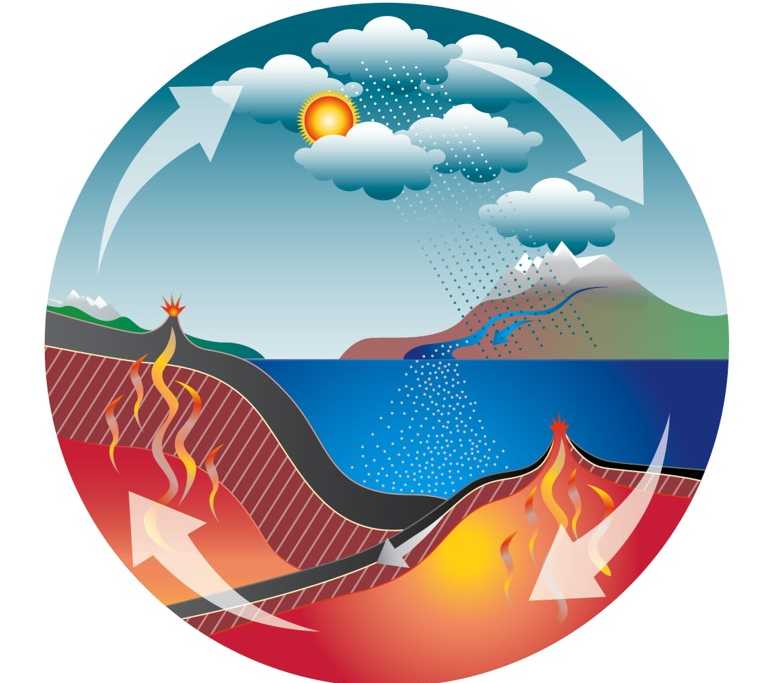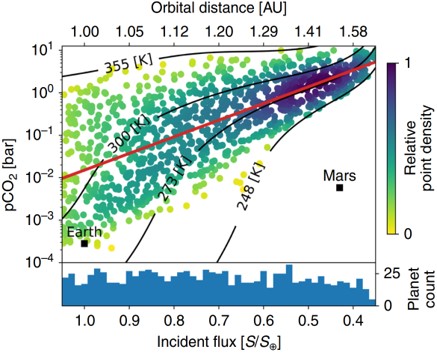Planetary relevance of the carbonate-silicate weathering feedback
In the search for habitable worlds beyond the solar system the habitable zone (HZ) is a valuable concept indicating an increased likelihood of sustained liquid water on a planet’s surface within a limited range of distances to a host star. In the conservative HZ hypothesis, a functioning carbonate-silicate cycle acts as a weathering thermostat, which is thought to stabilise the planetary climate throughout the HZ by creating a decreasing trend of atmospheric CO2 with incident stellar flux.
We are assessing requirements needed to test the prevalence of this negative feedback with population scale observations of terrestrial exoplanet atmospheres. For this we use CO2-Flux trend predictions for Earth-like HZ planets based on coupled climate and carbonate-silicate weathering models (Lehmer et al., 2020).


